Member of the German Bundestag Stracke in discussions with entrepreneurs in Memmingerberg
Memmingerberg/Unterallgäu. Regarding the impacts of the pandemic on small and medium-sized businesses and the rising infection rate in autumn, the Allgaeu Member of the Bundestag Stephan Stracke (CSU) exchanged experiences with entrepreneurs in Memmingerberg. Participants of the conversation were Dr.-Ing. Albert W. Schultz along with Johann Erbe, Werner Schmidt, Gotthard Kienle (retired) from Magnet-Schultz as well as Markus Fehr from the dairy Ehrmann. Further major concerns were the future of alternative drive technologies and securing energy supply after Germany’s withdrawal from atomic energy and coal-powered electricity.
„We all have to rise up to the pandemic’s substantial challenges“, Stracke emphasized with regard to the currently exploding infection rate. All conversational partners welcomed that the Chancellor, together with the Prime Ministers of the federal countries now agreed upon the priorisation that schools and day-care facilities for children stay open and that skilled crafts and trades, production and retail continue. Even though this leads to a considerable restraint in private lives, the renouncement of a comprehensive lockdown is a real chance for the economy. „It is even more important now that we do not lose patience and risk even more severe restraints“, the Member of the Bundestag warned.
The coalition’s agreement to extend higher short-time working benefits and the facilitated access to short-time work until the end the coming year was expressively acknowledged by all entrepreneurs. „In the tough struggle with the CDU who wanted to exit short-time work already in the first quarter of 2021, we, as CSU, were able to assert ourselves. This is good as it is! There are many branches for which short-time work is the last chance to ensure livelihoods.“ Stracke explained, specifying the examples of the entertainment, tourism and gastronomy branches.
Schultz and Fehr reported that the mandatory use of face masks is consistently adhered to in their companies. This reflected a considerable drop in sick notes. „We at Ehrmann currently have the lowest sickness rate since we started taking records“, says Fehr.
With respect to the structural change in the automotive industry, Schultz denunciated the biased focus on e-mobility. „Germany builds the best cars in the world. If the combustion engine is now being demonised, we are deprived of our technological lead in the world market. Those who do that have not yet understood where our country’s wealth originates. “, he articulated. He, as well as Kienle and Fehr, advocated the promotion of synthetic fuels for CO2-neutral implementation in modern combustions as well as fuel cell technologies with hydrogen. According to Schultz, in these areas, the technical knowledge of German engineers was asked for; E-mobility via battery, in turn however, was a topic of raw materials.
This statement was also affirmed by Stracke. „The Great Coalition decided on the national hydrogen strategy this summer. Hydrogen from regenerative energies makes it possible to create Germany’s industries in a climate-friendly way and, at the same time, to strengthen Germany as a centre of technical innovation. He added that promoting the hydrogen system may create a new job generator. Here, however, it would be important to think not only in national but European and global terms. „The potential of wind and solar energy in Africa is vast. With climate protection technologies „Made in Germany“ we can produce hydrogen and synthetic fuels at competitive prices in Africa. At the same time, we will be able to improve people’s life conditions there significantly. “explained Stracke. The Federal Development Minister Gerd Mueller has recognized this fact and urged to act quickly since other states have already been active in Africa.
On the economy’s side, the topic of secure energy supply after the German exit from coal-powered and atomic energy is seen with concern, reported Schultz. Small and medium-sized businesses are dependent on a secure and complete energy supply, says Kienle. If energy is only guaranteed by regenerative energies, the security of supply could no longer be granted, especially during the dark season. This phenomenon is a great challenge for industries. Unfortunately, politics did not yet pay enough attention to this fact. This is why his company has already engaged in creating an emergency supply conception, says Schultz. Fehr reported Ehrmann had also already invested here. With the costs that amount to seven-digits figures for both companies, they are left alone. Here, Fehr and Schultz requested a clear energy supply strategy and, in this context, also asked for further development of the EEC as well as for opportunities to deliver their own energy to third parties, such as neighbouring communities. Stracke encouraged to have another discussion on this topic, to which he would also invite his colleague from the German Bundestag Andreas Lenz (CSU). Lenz is a member of the Committee for Economy and Energy, as well as head of the Parliamentarian Advisory Council for sustainable development in the German Bundestag.
As a conclusion, Stracke emphasized the importance of well-functioning small and medium-sized businesses for the country as can be additionally seen during the pandemic. Now it is important to flatten the number of new infections in order to have the economy recover continuously.
Source: Members Office

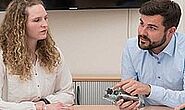

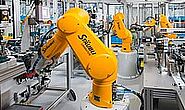

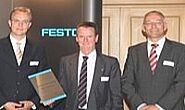
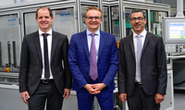
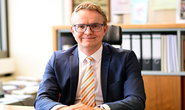
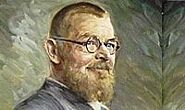
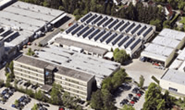
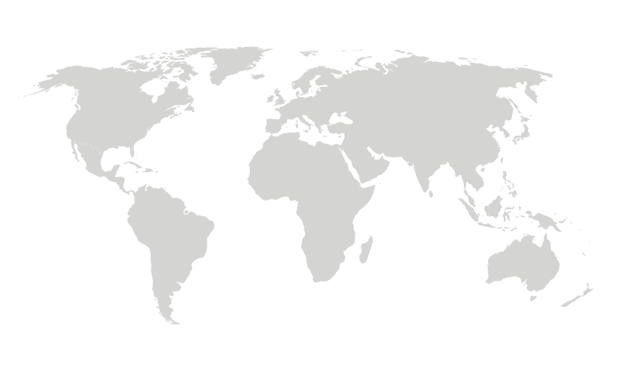











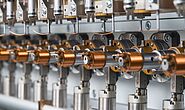


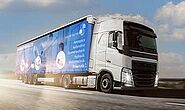
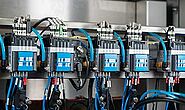
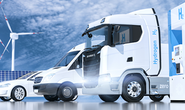
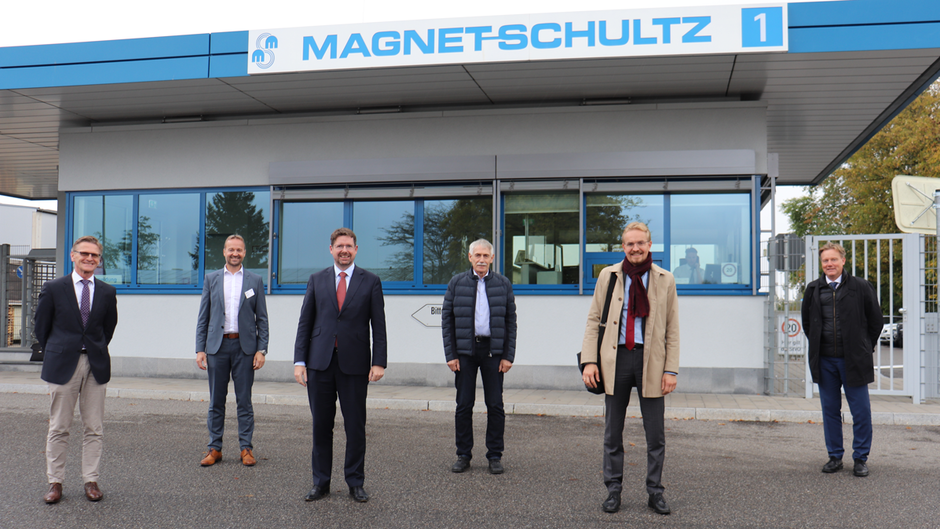
 +49 8331 1040
+49 8331 1040 info@magnet-schultz.com
info@magnet-schultz.com